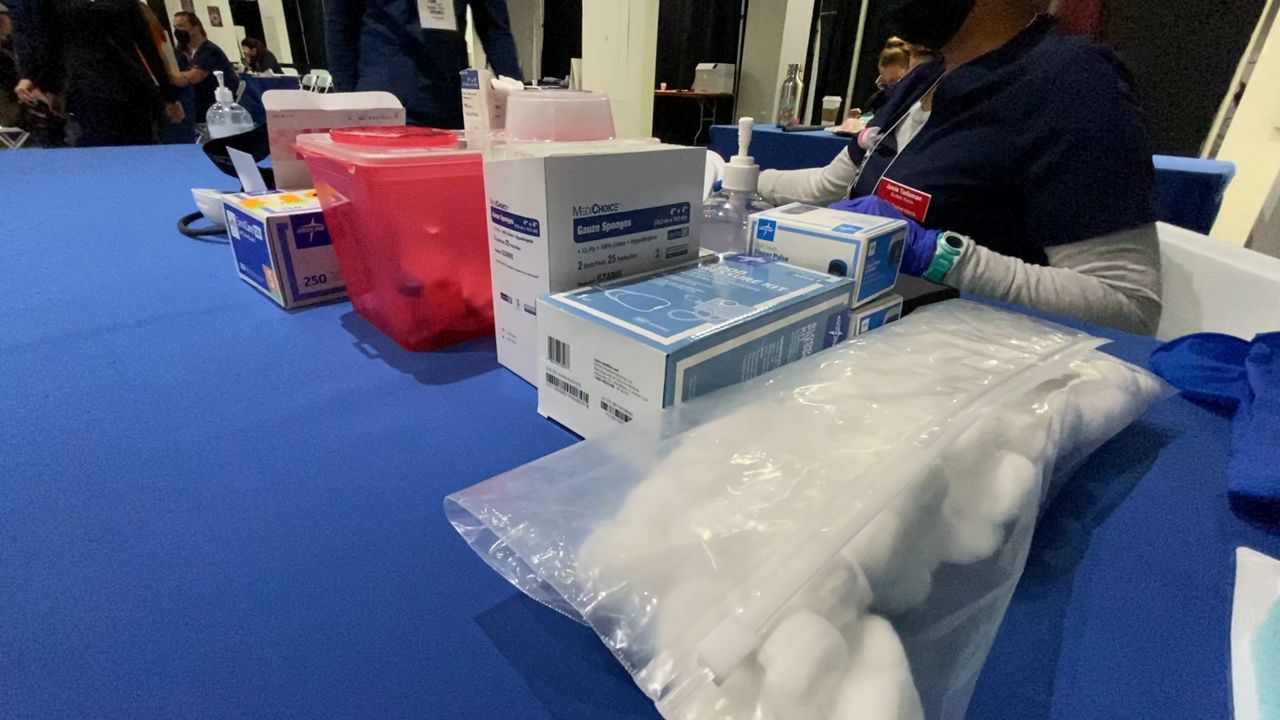UCLA health care volunteers provide health care access - Spectrum News 1

LOS ANGELES — Inside the Reef Event Center in downtown Los Angeles, hundreds of doctors, dentists, medical students and others, like Tara Shahrvini, came together to help those who might not have insurance or the finances to pay for health care.
"I'm volunteering today just to engage more with the community and learn from patients as much as I can help them," Shahrvini said.
What You Need To Know
- 200 UCLA health care workers, students volunteered in this year's Care Harbor at the Reef Event Center in downtown Los Angeles
- The three-day event estimated to provide medical, dental and specialty services, and referrals for about 500 patients each of those days
- Medical Students received firsthand experience in connecting with the health care needs of the community
- 3.2 million are estimated to be uninsured in 2022, according to the UCLA Center for Health Policy Research and the UC Berkeley Labor Center
During the three-day Care Harbor mega clinic event sponsored by the University of California Los Angeles Health, Shahrvini cared for multiple patients. She is learning how to address each person's concerns and needs.
"High blood sugar, diabetes, you know, chronic medical conditions that require long-term treatment and long-term care," she said. "That if you aren't able to access resources for a few years, can get exacerbated."
Shahrvini was one of 200 UCLA Health care volunteers on-site.
It is estimated that about 3.2 million Californians will be uninsured this year, according to the UCLA Center for Health Policy Research and the UC Berkeley Labor Center.
Dr. Catherine Weaver is serving as the medical director on-site, where the services are key to reaching over 500 people each day of the event get care.
"If they don't have access to a primary care physician, they are likely not going to have access to like a cardiologist. This is important in getting them tied into a network and to help establish the care going forward," Dr. Weaver said.
As the temporary waiting areas filled out, Shahrvini and the other staff on-site attempted to see as many patients as they could.
"It's really hard to acknowledge faults in our current system and that they are so deeply rooted that they are also really hard to address, as well. So, I hope that us being here shows that we are trying and that we are trying to do better," Shahrvini said.
She might be a medical student today, but she is focused on being a future doctor, hoping to cure a lack of access to health care.
Comments
Post a Comment